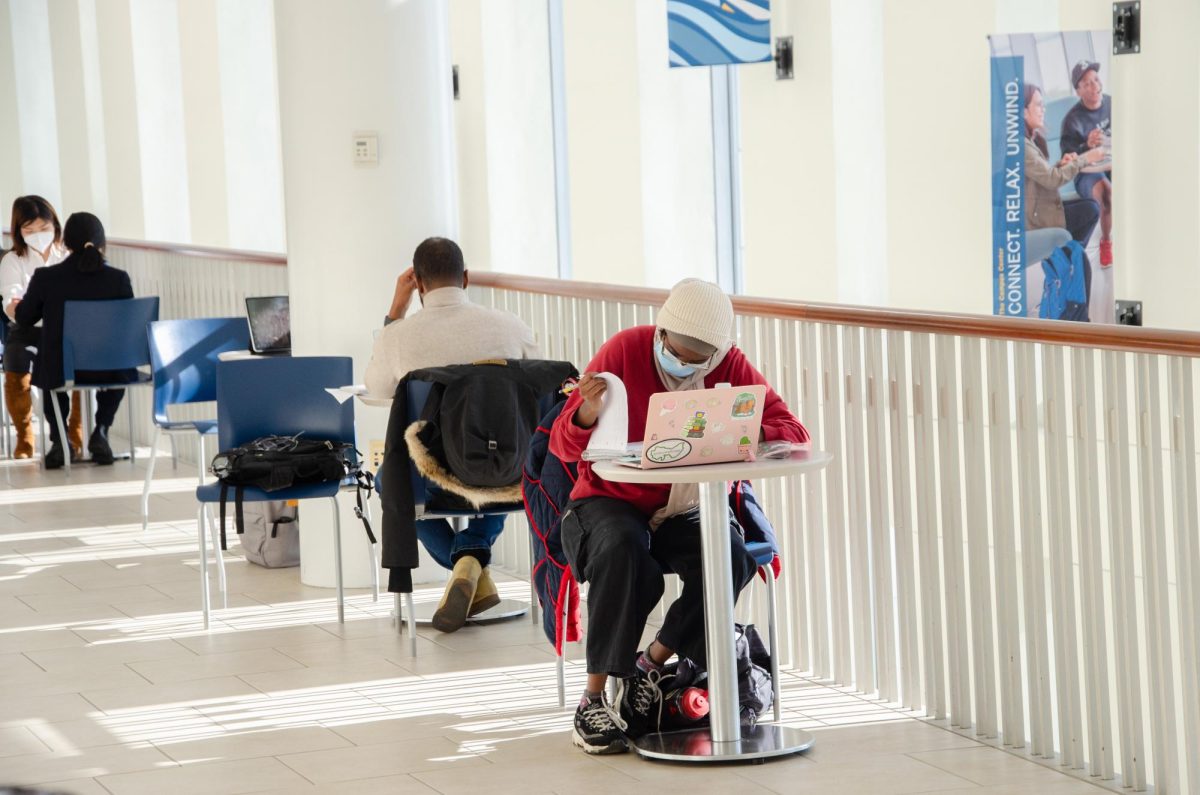For the last month of the semester, finals week becomes a daunting specter of stress and anxiety, and students and professors alike are already gearing up for December. With the pass-fail deadline behind us and no way out for the rapidly approaching exam, the tension is palpable. But take a step back and think—why do we have final exams in the first place?
It’s certainly not because they align with UMass Boston’s declared values. According to the UMass Boston website, the UMass Boston mission is “Promoting the practice of democratic citizenship; preparing a diverse, talented workforce; informing equitable public policy; strengthening the social and economic resilience of our city.” [1] As always with UMass Boston, this is a series of nonsensical buzzwords loosely strung together. It’s difficult to even interpret this mission statement. How, by any stretch of the imagination, is UMass Boston “promoting the practice of democratic citizenship” with its classes?
A more poignant question, though, is how do finals prepare students for the workplace? The short answer—they don’t. Anyone with any internship or work experience knows that that’s not how employment works, even research or office jobs. What employers care about is students’ hands-on experience and practical knowledge, not how well they can memorize equations in calculus. UMass Boston is more than capable of using any other metric of workplace readiness; even a cumulative hands-on experience or project would be better than a useless three-hour exam.
UMass Boston also states, “Equity and an ethic of care are core values that drive institutional policies, practices, and culture.” [1] Final exams fly in the face of equity. Some students test poorly; at this point, it’s common knowledge that students with certain learning disabilities can be uniquely intelligent and well-learned while also failing cumulative exams. One exam grade should not be a student’s end-all be-all, regardless of if they struggle in other areas of schooling.
Finals are structured in a way that puts undue stress on already over-stressed college students. Most classes have two to three hours of homework for every hour of lecture, and on top of that, students are expected to squeeze in time for working, sleeping, eating and God forbid a social life. There’s no way for anyone to feasibly include studying for exams in all of that without stressing themselves out. Having one concentrated finals week also collects all the most important exams into just one week. If you’re sick that week or have a family emergency, you’re screwed, plain and simple.
Long-term stress of the kind that finals induce is nothing to scoff at. According to Dr. Jessica Stern, a clinical psychologist and assistant professor at NYU, stress can wreak havoc on your body. Long-term stress can lead to disrupted sleep, chronic pain, weakened immune systems, impaired gastrointestinal function, high blood pressure and dozens of other indirect effects. [2] While there are certain things students can do to mitigate the effects of stress on the body, a certain amount of stress is inevitable—like finals week.
The worst part: Finals don’t even provide incentives to learn the content throughout the course. Researcher Phil Hedayatnia, who works at Rice University’s Liu Idea Lab and is at the forefront for the push to eliminate finals, said, “Everybody knows in the education sector that finals don’t work. You study things for one semester and forget them the next.” [3] Be honest with yourself; have you ever learned better in a class with a final, or did you simply study harder for the same results?
As the editorial team of our sister school, UMass Amherst, pointed out, “The process of learning and the academic calendar are so out of sync. Learning is continuous and gradual, whereas academic pressure fluctuates and spikes sharply, typically in the months of December and May.” [4] Plain and simple, finals are not geared toward accelerating or accentuating the learning process; they simply exist because that’s the way we’ve always done it.
Finals are an outdated relic reflecting high-brow ideals of “academia,” and as UMass Boston moves out of the past and into the future, final exams need to be left behind. It may seem like an insurmountable departure from the status quo, but as more and more middle and high schools abandon finals, it’s time for post-secondary education to do the same.
[1] https://www.umb.edu/about/mission–values/
[2] https://psychcentral.com/stress/can-you-die-from-stress#health-effects
[3] https://thetab.com/us/2017/04/28/finals-should-be-scrapped-66291
[4] https://amherststudent.amherst.edu/article/2013/12/04/finals-what%E2%80%99s-point-it-all.html


